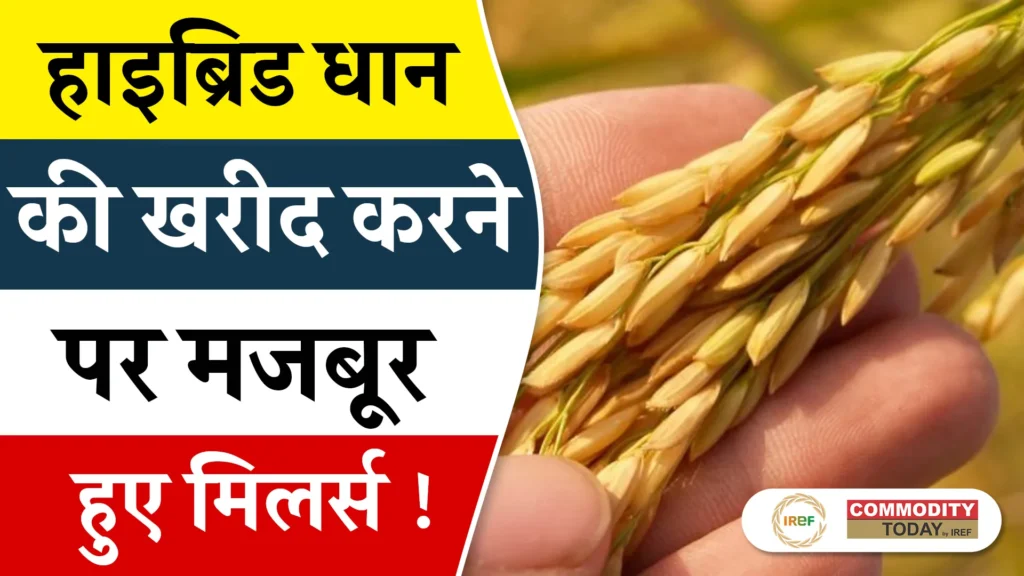This kharif season, people are continuously searching about Punjab hybrid paddy buying 2025 rice shellers in Punjab are actively buying hybrid paddy varieties, despite their strong opposition last year and a state-government ban on the sale of hybrid (non-Basmati) paddy seeds in the state. The change in stance — from refusing to accept these seeds to now storing government-procured hybrid paddy — comes as millers face supply shortfalls and unpredictable weather has taken a toll on yields.
Punjab hybrid paddy buying 2025: Millers’ shift amid supply concerns
The state government had imposed a ban ahead of the Indian rice production season of 2025 on the sale of hybrid paddy seeds, citing low milling out-turns (OTR) and springing from millers’ protests that hybrid varieties gave only about 60-63 % OTR — below the minimum 67 % required by the Food Corporation of India (FCI). Yet this year, many millers say they are left with no option but to accept hybrid paddy because weather disruptions — including early September rain, late September heat, and subsequent crop damage — have cut yields to 22-23 quintals per acre, compared with 28-30 in previous years.
“Had we not procured hybrid paddy this year, our mills would have run out of stock,” said a rice miller from Ludhiana. “Despite OTR losses, we prefer losses over sitting idle.”
Why are farmers and seed industry watching closely?
Farmers view the shellers’ shift as hypocritical. Hybrid varieties had given 5-6 quintals more yield per acre, yet last year those same millers had rejected them citing low OTR. Now, when yields are weak across the board, those hybrids are being bought up. Moreover, the seed industry argues that the real issue is not the hybrid genetics, but harvesting, drying and outdated milling equipment. The Federation of Seed Industry of India (FSII) has pointed out that hybrids notified for Punjab offer higher yields and are water-efficient — key in a state with groundwater and crop-residue burning problems.
Legal & policy backdrop
The state’s ban on hybrid paddy seeds was challenged in court. The Punjab and Haryana High Court recently ruled that the state cannot legally ban notified hybrid seed varieties under the Seeds Act, 1966.
Rice production in key producing states and context
While the focus here is Punjab, this development has implications for rice production in key producing states across India. The shift in seed choice, procurement behaviour and milling capacity can influence output, quality and supply chains nationally. The move by shellers signals that supply-side pressures (reduced yield, potential stock shortfalls) are outweighing previous objections to hybrid paddy.



